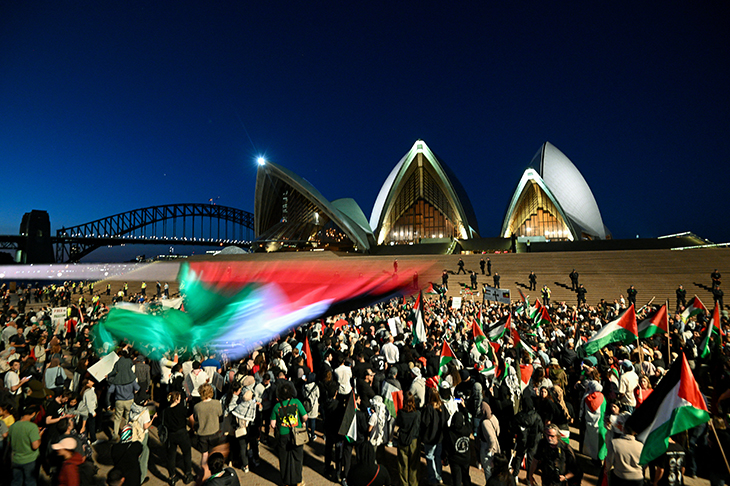
UPDATE: Australia faces a critical moment as reports confirm a dramatic surge in antisemitism, prompting urgent calls for action from the government. The Segal Plan to Combat Antisemitism has gained renewed urgency following the horrific events of October 7, 2023, when Hamas terrorists brutally attacked innocent civilians in Israel, igniting widespread global outrage and backlash.
This alarming rise in antisemitic incidents has led critics to label Melbourne as the “Antisemitic Capital of the West.” Experts argue that the Albanese government’s actions, particularly the decision to allow the entry of 3,000 Gazans, raise serious concerns about national security and the potential for further antisemitism in Australia. There are fears that these individuals may have ties to Hamas, making this a national priority.
As King Abdullah II of Jordan has stated, “no refugees in Jordan, no refugees in Egypt,” highlighting the reluctance of regional governments to accept migrants with such affiliations. The Albanese government’s decision starkly contrasts with the cautious approach taken by Arab nations, raising questions about the potential consequences for Australian society.
The political landscape in Australia is currently shifting as the 2025 election approaches, with the Labor Party increasingly influenced by leftist factions. This transformation could lead to more divisive policies, especially regarding immigration and national security. Critics warn that the left’s alliances with radical groups may further complicate the situation, reflecting a disregard for the implications of such partnerships.
Historically, antisemitism in Australia has ebbed and flowed, with roots tracing back to the early days of European settlement. While Australia initially fostered a culture free from antisemitism, the late twentieth century witnessed a rise in discriminatory attitudes, fueled by political missteps and immigration policies. The Fraser government‘s handling of the “Lebanese exception” allowed for an influx of individuals bringing longstanding regional hostilities.
In a troubling incident on October 9, 2023, a violent demonstration erupted outside Sydney’s Opera House, where protestors chanted inflammatory slogans, prompting law enforcement to come under fire for their failure to act. Videos of the event circulated globally, drawing condemnation and raising alarms over the safety of Jewish communities in Australia.
Officials from the Executive Council of Australian Jewry have taken legal action against Islamic preacher Wissam Haddad for inciting hatred, a move that underscores the growing urgency to address antisemitism head-on. Critics argue that the government’s inaction reflects a broader failure to uphold the law and protect vulnerable communities.
With the current climate indicating a potential rise in antisemitic acts, the call for accountability among politicians is louder than ever. Many citizens are advocating for a shift in political power, urging voters to support parties like One Nation that prioritize national security and social cohesion.
As the situation unfolds, citizens and officials alike are left questioning: what steps will the government take to combat this rising tide of hate? The urgency of the moment is clear, and Australians are left waiting for decisive action to ensure the safety and dignity of all communities.
In this moment of crisis, it is imperative that Australian leaders take immediate steps to address the roots of antisemitism and reaffirm their commitment to the principles of peace and tolerance. The eyes of the nation are watching closely as developments continue to unfold.







